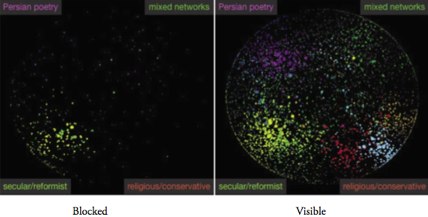See You In Court
February 9th, 2009 — Chris Van BurenDefamation suits for Internet-related speech, particularly the free-wheeling and now sprawling content of Web 2.0 sites, is on the rise. Sites like Craigslist, Yelp and Facebook, as well as less known entities such as the controversial Juicy Campus are worrying some that the internet is rapidly becoming a zone of murky facts, biased and hurtful reviews, flaming and generally irresponsible speech. According to the SF Chronicle (by way of Mother Berkman; also see the Citizen Media Law Project’s legal guide here), many of the purported victims are striking back:
The number of people getting sued over online speech, although small, is rising sharply, according to statistics from the Citizen Media Law Project at Harvard’s Berkman Center for Internet and Society. Civil lawsuits nearly doubled in 2006 and rose again in 2007 by another 68 percent.
No doubt eager plaintiffs (some of whom are legitimately aggrieved; others not) will continue to test the limits of holding networks responsible for hosted content, despite the generous protection currently enumerated by the Communications Decency Act.
I worry about tinkering with that bill, if only because it is really an antiquated (passed 1996) regulatory scheme intended to control pornography. Prematurely lumping contested Web 2.0 speech into the formula seems hasty, and potentially represents a chilling effect on legitimate web speech.
Moreover, holding site-owners strictly responsible (like Turkey does in holding YouTube hostage over undesirable political content) would almost certainly attenuate the power of Web 2.0 technology itself by punishing the networks which host user input, harmless or defamatory. Far wiser a solution is a more robust self-policing of privacy violations, facilitated by the flagging of inappropriate materials which are then reviewed against the terms of service, the private agreement pre-existing between networks and users, which may be as stringent with regards to speech as they like.



 Click Here
Click Here